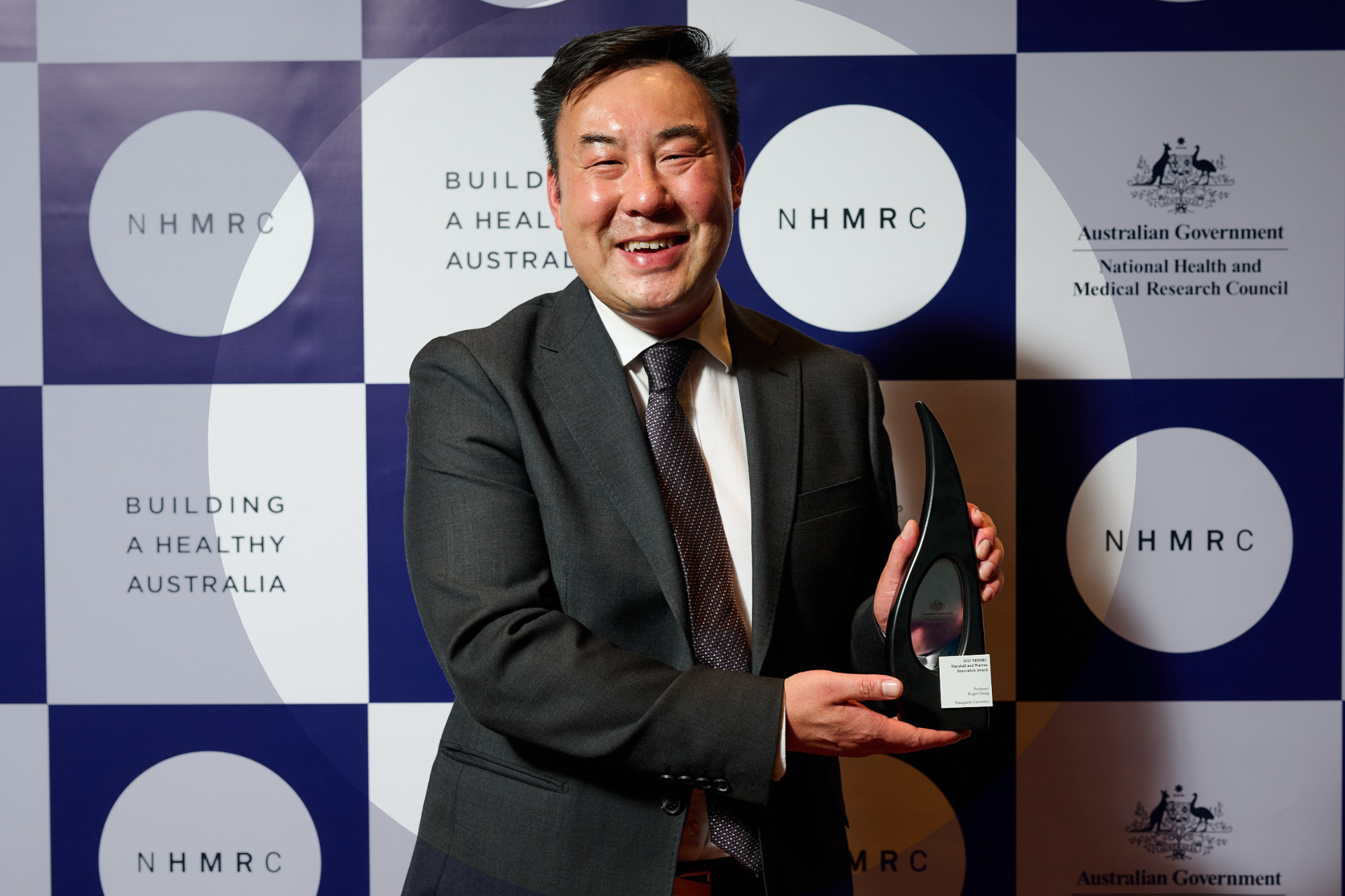Professor Roger Chung is the Professor of Neurobiology and Neurochemistry, and Deputy Dean (Research and Innovation) in the Faculty of Medicine, Health and Human Sciences at Macquarie University. Professor Chung’s research employs a multi-disciplinary approach to understanding the biochemical, molecular and cellular mechanisms that underpin how neurons respond to injury or neurodegenerative disease, and how non-neuronal cells (glia) are involved in modulating this process. Professor Chung is the co-founder and Chief Scientific Officer of CelosiaTX and also leads the Neurochemistry and Molecular Therapeutics Group within the Macquarie University Centre for Motor Neuron Disease Research.
There is strong scientific interest in developing gene therapies for rare neurodegenerative diseases such as Motor Neuron Disease (MND). MND is caused by the abnormal accumulation of a protein, called TDP-43, inside neurons in the spinal cord and brain.
Our project will establish a novel method for precise control of therapeutic gene expression by gene therapy. This is important, because the expression of the therapeutic gene must be tightly controlled – our method will allow on/off control - the innovative feature of our solution is that it is controlled by the disease status of neurons.
We have designed this in such a way that the switch will only turn on the therapeutic transgene when neurons are sick and turn off when the therapy has reduced symptoms. Current methods do not have this level of on/off control for gene expression which may have adverse or detrimental effects if prolonged for many years.
Successful outcomes of our project will make an important contribution towards clinical development of future gene therapies for MND.
The creative spark for this project originated from significant advances made in the biomedical field in synthetic biology and RNA technologies. We have used these technologies, together with our understanding of cell biology and disease mechanisms, to bioengineer the molecular on/off switch. This is an example of multidisciplinary research, where we creatively bring together different technologies to build innovative tools for controlling gene expression of a gene therapy.
This is an ambitious project that brings together a dynamic group of researchers with scientific expertise in neurobiology, genomics and transcriptomics, bioinformatics synthetic biology, RNA biology and proteomics. This broad range of individual expertise, and our collaborative commitment and shared motivation to beat MND is the key to our success as a team.
Notably, the initial concept of our technology was identified by a bright young Early Career Researcher (ECR), and together with my guidance and the drive of several more ECRs in the group, the technology was prototyped and tested. Based upon this experience, ECRs have been an essential drive for our research success.
My advice for ECRs is to immerse yourself in a research environment that brings together cross-disciplinary expertise, and to take the opportunity to volunteer new research ideas – you never know if it will work unless you give it a go (secret experiments sometimes come off!).
I am honoured to receive this award on behalf of our team, because it our collective efforts that have underpinned the innovation and creativity necessary for creating this new technology. I am very grateful to Macquarie University for providing us with the bio innovation ecosystem that has fostered our success, and the pathway to facilitate patenting and translation of this technology towards clinical use.
I am particularly excited that this high-risk, potentially high-reward, research project has been recognised by this award. This is a demonstration of the importance of basic discovery research, and the potential application of multidisciplinary research knowledge towards potential clinical benefit.

